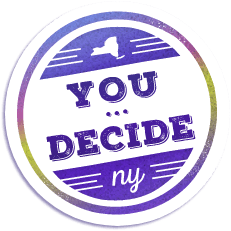Gambling can seem like an exciting activity, but for many young people, it can quickly turn into a harmful habit. It’s important for communities, parents, youth and young adults to understand how gambling works and how to protect themselves from its dangers. The good news is, with the right tools, like financial literacy, and support, we can help young people make smart choices and stay safe.
Why Is Gambling a Concern for Young People?
Recent statistics show that gambling is a real issue for youth and young adults today. In New York State, 23% of youth said they have gambled at least once in the last year (OASAS, 2022). This means almost one in four youth have tried gambling, and for some, it can become a habit. What’s even more concerning is that 30% said it is easy for them to get involved in gambling (OASAS, 2022). With so many opportunities available, it’s important to understand how to help them make better choices.
Gambling can take many different forms, from sports betting to games on apps and websites. It’s important for everyone to understand the risks of gambling and how to prevent it.
The Role of Parents, Schools, and Communities
One of the best ways to protect youth from gambling is through support from parents, schools, and the community. Here are some ways we can all work together to keep young people safe:
- Community Pro-Social Opportunities: Creating positive activities and safe spaces for young people is one of the best ways to prevent gambling. Sports, after-school programs, and community events can help kids build healthy habits and keep them busy. By offering fun, engaging activities, we give young people alternatives to gambling that can be just as exciting.
- School Autonomy and Rewards: Schools play a huge role in shaping young people’s choices. By promoting healthy, safe environments, schools can help prevent gambling. Offering rewards for good behavior, such as participating in positive activities, helps reinforce good habits. Giving youth and young adults the freedom to make healthy decisions, while still offering guidance and support, can build confidence and reduce the chances of gambling.
- Parental Praise and Involvement: Parents have the power to make a big impact on their children’s lives. Praising youth for making smart, healthy choices and being involved in their activities can keep them away from gambling. When kids feel supported at home, they are less likely to turn to gambling or other risky behaviors. Open conversations about money, how gambling works, and the risks involved can help kids understand why it’s important to make good choices.
- Social Skills Development: Building strong social skills helps young people resist peer pressure and make better decisions. Kids who are comfortable talking to their friends and adults about tough subjects, like gambling, are more likely to stay away from risky behavior. Teaching kids how to set boundaries and say “no” when they feel uncomfortable is key to helping them avoid gambling.
How Financial Literacy Helps
Learning about money is an important part of growing up. When youth and young adults understand how to manage their finances, they are less likely to get involved in gambling. Financial literacy includes understanding how money works, the value of saving, and how to make smart choices about spending. Helping kids learn about these skills early on can make a big difference in preventing gambling problems later in life.
Parents and schools can teach youth and young adults’ basic financial skills, like creating a budget, saving money, and setting goals. This knowledge helps them understand the importance of making responsible decisions with their money and recognizing when gambling could be a problem.
What Can We Do?
We can all play a part in protecting young people from the dangers of gambling. Here are a few simple steps:
- Start conversations about gambling and money with your children. Help them understand what gambling is and why it can be risky.
- Get involved in community programs that offer healthy activities and fun alternatives to gambling.
- Support schools in promoting healthy habits, making good choices, and rewarding youth and young adults for positive behavior.
- Help kids build social skills so they can handle peer pressure and make better decisions.
By working together—parents, schools, and communities—we can help young people avoid gambling problems and grow into responsible, informed adults. Let’s give them the tools they need to succeed and stay safe.
Where can I find help?
If you find yourself struggling with gambling harm, or if you suspect someone you know is facing such challenges, don’t hesitate to seek help. For 24/7 support, call the NYS OASAS HOPEline at 1-877-846-7369 or text 467369. Or choose your county using our interactive map on our NYProblemGamblingHELP.org HOME PAGE to see the contact information for the Problem Gambling Resource Center (PGRC) in your region.
